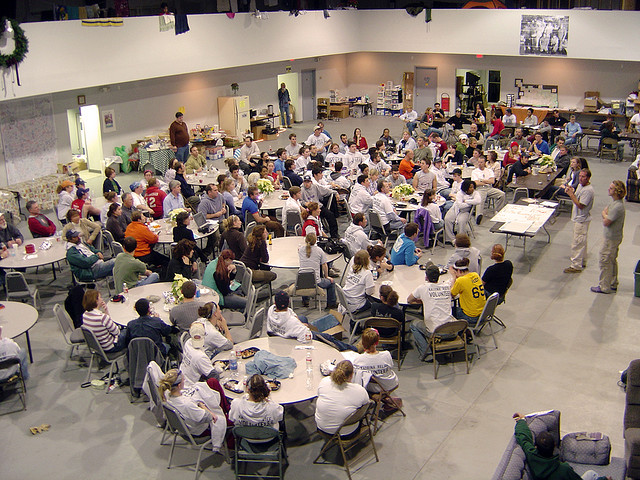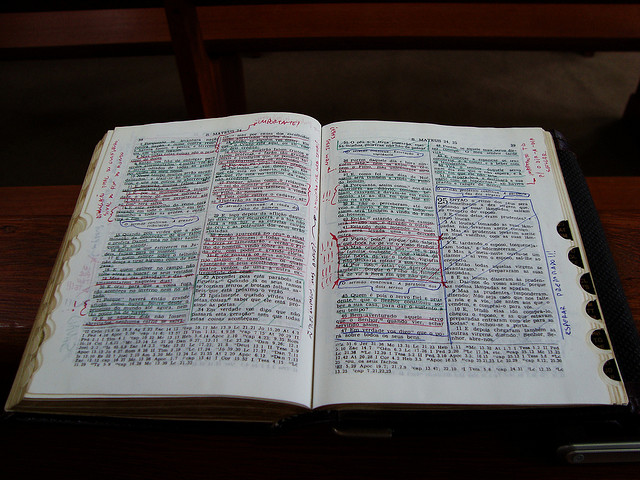
Growing Communication in a Congregation
We all know it. We all say it.
Communication is vital in any group, family, or organization.
That being true, it is vitally important to the life of a congregation. As a church grows, communication not only becomes more important, it often becomes more difficult. That seems to be especially true between the eldership and the congregation.
Far too many elderships, as the membership grows, begin to “hole up” and make decisions from behind closed doors, rarely spending time truly shepherding the flock.
Last night at Lebanon Road, we had a special evening. We simply called it “A Conversation with the Elders.” … and that’s what it was. The entire congregation was invited to share ideas, concerns, and pats on the back. It was a tremendous evening, and a large number of our members were present. The meeting was scheduled to start at 7:00 and to go as long as needed. It went just over two hours, and the tone remained positive throughout. I think that was true because (1) people saw our elders listening, and (2) each idea was treated with respect. This was not a “solve everything” meeting, but was simply a way to throw out ideas for the future.
Some of you are reading this and thinking, “That would never work where I’m at. Everyone is arguing already.”
If you think that way, consider this type of meeting anyway. Why? Here are a few reasons.
1. Openness. In this type of meeting, everyone is free to speak, but everyone is also listening. There are not little groups talking about other little groups. Every idea is welcome and considered.
2. Respect. No one “attacked” our elders last night, because the elders kept the tone positive. They welcomed any idea and tried to give a rationale behind why something had or had not been considered before. In speaking clearly, the deep respect that people already had for our elders only grew. But also, members had respect for other members. People saw where others’ interests and dreams were, and it built interest and enthusiasm.
3. Dreaming. A congregation needs to dream. We need to look beyond next Sunday and think about where we would like to be far into the future. Meetings where dreaming is allowed help a congregation to think big again.
4. Involvement. Was every member of Lebanon Road present? Of course not, but I think most people were very pleasantly surprised with how many (of all ages) came and spoke up. Those who did not come will be disappointed when they learn just how many were present and that they were given a fair hearing.
So, did we solve anything? Not in the immediate seconds following the meeting. But ideas were laid out and dreams began to flow again. That’s truly exciting!
Before finishing, let me state that this meeting was not called to address some “major” problem. Instead, it was called to help us all grow closer together and to build that vital communication between our elders and the members. Our elders are wonderful, and I’m thankful that they tried to find yet another way to open the lines of communication. As Lebanon Road grows, it could be easy for them to never want to hear from anyone, or from just a few people. Instead, they are looking for ways to expand communication. What congregation doesn’t need that!
QUESTION: Has your congregation ever had such a meeting? What tips would you give for helping it go well?
————————
Photo credit: Chris Metcalf on creative commons
To receive our blog posts via rss, click here. To subscribe via email, click here.





5 Comments
Adam Faughn
I will throw out the first “idea,” too. Do NOT have this type of meeting in the auditorium unless you must. Our elders decided to hold it in our fellowship hall, because people were not as spread out, and I think that was a very, very wise decision.
Xris
Adam, I have been reading your blogs for a while now and really enjoy them. Our congregation has just named several new deacons and I hope to suggest this be done as a way to increase communication. Do you have a suggestion box and/or a way to search the archives for previous posts.
Adam Faughn
In the upper right-hand corner (below our picture), there is a search bar. I would also suggest using the “categories” list to narrow down to “church life” articles.
Thanks for reading! Glad to have you on board.
Josh Ketchum
Adam,
We have done a similar think in the past. It seemed that every year was maybe too often for us, so we have spread it out. Jerrie Barber suggests beginning with three promises – 1. We will listen to everything. 2. We will write it down. 3. We will think about it. – We announced these at the beginning that way you are not locked into any changes and do not feel pressure to explain or make decisions then or later. Of course Jerrie also says you should ask for them to evaluate your work as a preacher – trying to get some accept and learn from criticism. Did you do that one?
Adam Faughn
We did not do that, per se, but it was because that was not the focus of this particular meeting. The main focus of this meeting was ideas for 2013 and beyond for the congregation “at large.” While a few more specifics came up, that was not the major focus.